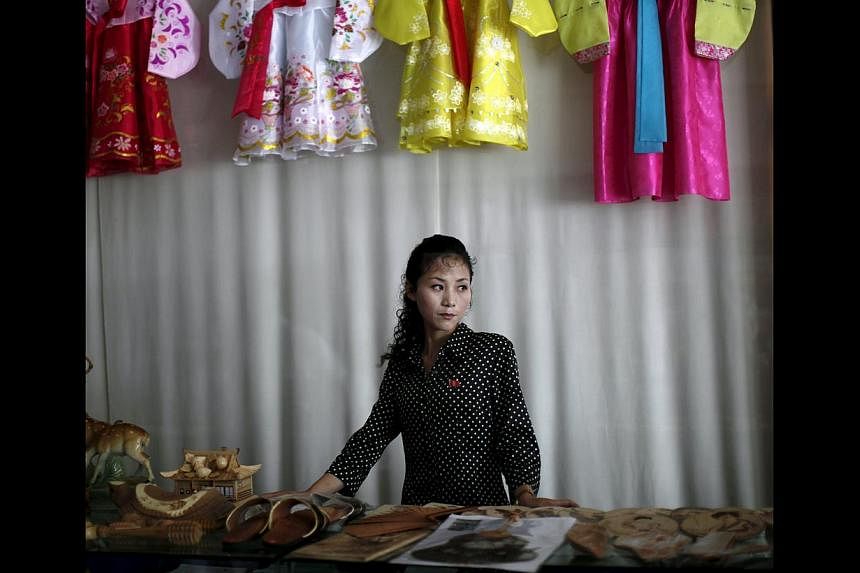SEOUL (REUTERS) - North Korea is a militarised, male-dominated society, but it is women who are making the money as the insular nation allows an unofficial market-based economy to take shape.
Women earn more than 70 per cent of household income in North Korea, mainly as traders in the informal markets that have proliferated in recent years, research by the South Korean government-run Korea Institute for National Unification found.
That is despite women making up only about half of the 12 million economically active North Koreans, experts said. Most men are stuck in state jobs that pay little or serve in the army.
"We North Koreans say men are fighting on the socialism front, but women are fighting in the battle of life," said a 26-year-old surnamed Jung, who fled to South Korea in 2012 and regularly sends money north to support her mother's grey-market business raising pigs and selling corn-based alcohol.
"There are no state provisions and my father has an unpaid job, which he must do almost as a duty," said Ms Jung, a college student in Seoul who asked that her full name not be used to protect her family members still in the North.
The North's centrally planned economy has not recovered from the collapse of the Soviet Union, Pyongyang's economic and military backer during the Cold War.
That was followed by a devastating famine in the 1990s that killed an estimated 800,000 to 1.5 million people, when women began selling foraged mushrooms and scrap copper cable to feed their families.
With state rations a distant memory, North Koreans have increasingly turned to the informal economy to support their families, and women are playing a disproportionately active role.
Still, men dominate North Korea's military and government, which command absolute power in the nation of 24.5 million.
The grey-market economy is not strictly legal but is widely tolerated, with corrupt officials among its main participants.
Traders who set up stalls in some of the roughly 400 markets that have sprung up around the country pay a stall tax to party officials, according to refugees and experts.
But the money earned by most independent traders is not big.
A survey of 60 women who defected from impoverished North Korea in 2011 and 2012, by the Citizens' Alliance for North Korean Human Rights, found that many of them earned informal monthly incomes of about US$6 to US$18 (S$8 to S$24) at current black market rates tracked by Daily NK, a Seoul-based website.
By comparison, state jobs pay 2,000 to 6,000 North Korean won (S$3 to S$9) a month - less than the 8,490 won cost of a kilogram of rice in the city of Hyesan, according to Daily NK data.
While state media promotes institutional gender equality, society has long been dominated by men. But money is changing that.
"North Korea's living standards depend on women's business abilities and skills, not on the state.
"Women are replacing the role of the state via the market economy," said Ms Kim Eun Ju, who heads the Centre for Korean Women and Politics in Seoul and regularly interviews recent defectors.
"Now, men are even looking for potential wives in marketplaces," she said.

